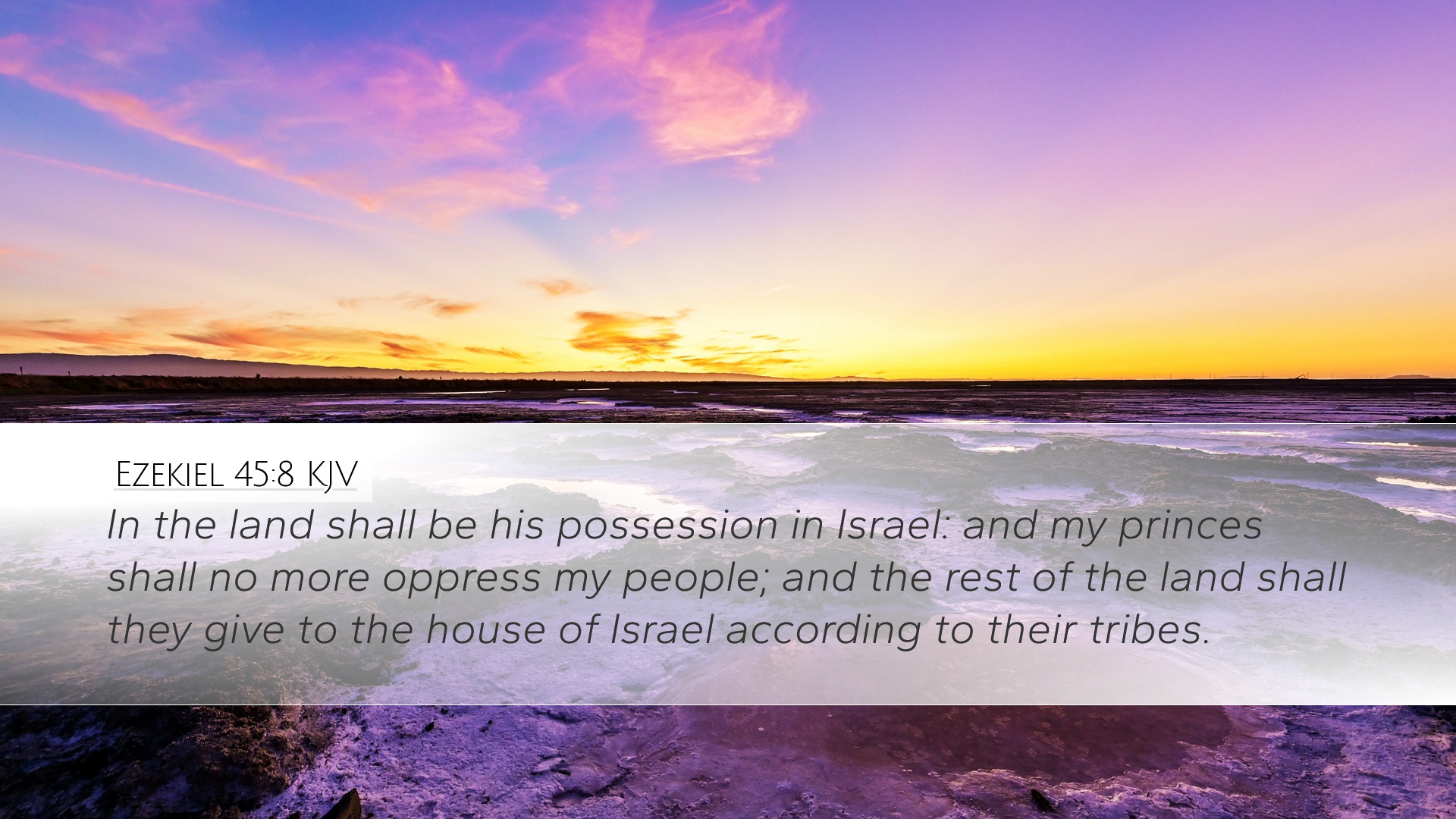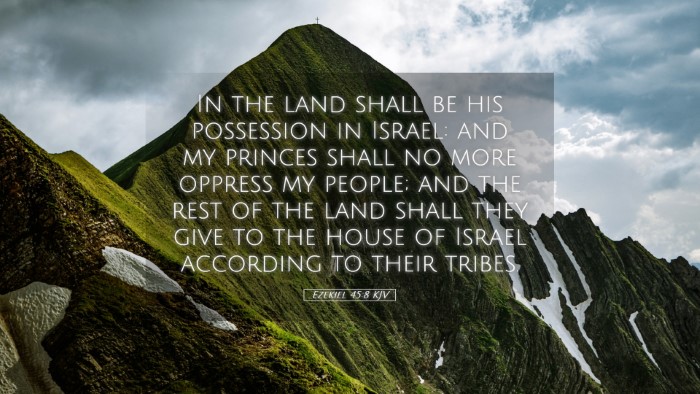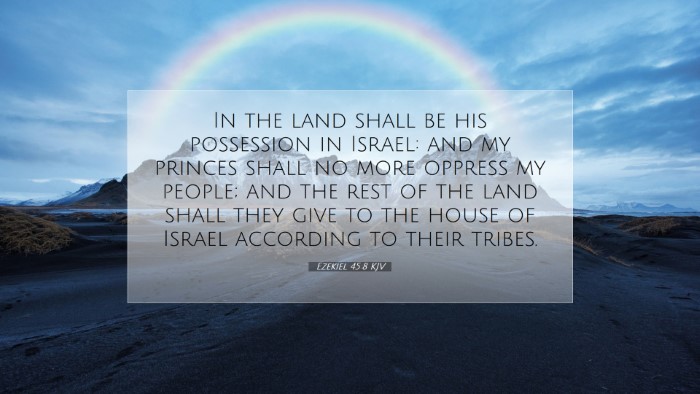Ezekiel 45:8 Commentary
Bible Verse: Ezekiel 45:8 - "This shall be the land which ye shall divide by lot unto the tribes of Israel for inheritance, and these are the names of the tribes: From the north end to the coast of the sea, the way of Hethlon, as one goes to Zedad."
Introduction
The book of Ezekiel stands as a pivotal work within the prophetic literature of the Old Testament, chronicling the vision of restoration and renewal given by God to His people during and after their exile in Babylon. Chapter 45 particularly deals with the division of the land among the tribes of Israel, reflecting both the promise of land and the significance of divine order. This commentary will draw on insights from renowned public domain scholars including Matthew Henry, Albert Barnes, and Adam Clarke.
Contextual Analysis
Ezekiel 45 is situated in a section of the book where God provides detailed instructions about the future Temple, the priests, and the allocation of land to the tribes. It marks a transition from judgment to hope, symbolizing restoration and the reaffirmation of God's covenant with Israel. The instruction regarding land division is significant in understanding God's ongoing relationship with His people and highlights the importance of each tribe's heritage.
Matthew Henry's Insights
Matthew Henry emphasizes the importance of this verse in the broader context of the restoration of Israel. He remarks that the division of land symbolizes not only God's faithfulness in fulfilling His promises but also the order and structure that He desires within the community. Henry underscores the methodical nature of God's plan, suggesting that each tribe receives its due portion, which reflects divine justice.
Albert Barnes' Observations
Albert Barnes provides a detailed exegesis of the geographical implications found within the verse. He notes the significance of location in highlighting the boundaries established by God for each tribe. The mention of the "north end to the coast of the sea" serves as a reminder of the full inheritance promised to Abraham's descendants. Barnes argues that this distribution ensures that every tribe has a distinct role and responsibility within the nation of Israel, indicating the importance of community and unity.
Adam Clarke's Thoughts
Adam Clarke takes a historical approach, connecting the allocation of land to the inheritance described in the book of Joshua. He points out that the division outlined in Ezekiel serves as a prophetic fulfillment of God's promises. Clarke also highlights the spiritual implications of land inheritance, suggesting it represents the blessings and responsibilities that accompany God's covenant. Each tribe's portion illustrates a communal life that requires cooperation, justice, and fidelity to God's commandments.
Theological Implications
- Divine Justice and Order: The allocation of land signifies God's justice, ensuring that each tribe receives its rightful inheritance. This conveys the idea that God's governance is fair and deliberate.
- Restoration of Community: The division of the land serves to restore the identity of the tribes and their communal life, reflecting God's desire for harmony and fellowship among His people.
- Covenantal Faithfulness: This verse reaffirms God's covenant with Israel. The land symbolizes both physical and spiritual blessings that come from being in a right relationship with Him.
- Importance of Heritage: The mention of tribal names and their respective portions underscores the significance of heritage and tradition within the Israelite identity, highlighting the value of roots and ancestry.
Practical Applications
For pastors, students, and theologians, Ezekiel 45:8 serves as a source of reflection on various communal and spiritual lessons. The following applications can be drawn:
- Leadership and Responsibility: This passage calls leaders and members of the church to recognize their distinct roles and responsibilities within the body of Christ.
- Embracing Diversity: The varied tribes illustrate the beauty of diversity within God's people, encouraging unity amid differences in gifts, backgrounds, and perspectives.
- Covenantal Living: Just as Israel was to live according to the laws given to them, so too are contemporary Christians called to live faithfully within the covenant established through Christ.
- Restoration and Hope: This passage gives hope that, no matter the circumstances, God can restore and bring His people back to a place of blessing and promise.
Conclusion
Ezekiel 45:8 encapsulates profound themes of divine justice, community restoration, and faithfulness to covenant. Through the insights of Matthew Henry, Albert Barnes, and Adam Clarke, we gain a deeper understanding of not only the historical and theological implications but also the practical applications for life today. As pastors, students, and theologians delve into this passage, they are reminded of God's enduring commitment to His people and the call to live in accordance with His principles of justice and harmony.


